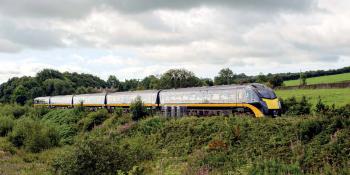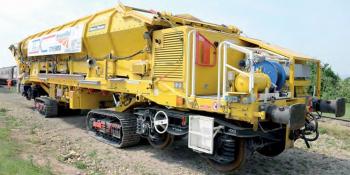
Network Rail has approved Bender’s next generation RS4 Rail Signalling Power Protection system for Tier 1 and Tier 2 live trial installations at multiple site locations.
The RS4 system has already received full Network Rail approval for Tier 3 installations that deliver increased sensitivity for first fault location and remote condition monitoring to identify core-to-earth failure of rail signalling IT power systems.
RS4 delivers continuous monitoring and analysis capabilities unachievable with previous technology. Insulation monitoring combines with an integrated fault locating current injector, pinpointing fault locations on miles of networked cables. The system is the simplest and most cost-effective method for upgrading earlier generation RS2/RS3 technology installed on the rail network.
The Network Rail certificate of acceptance (PA05/04750) allows trials of Tier 1 and Tier 2 RS4 with trackside power distribution systems up to 650V AC, Signal Power monitoring, Points Systems monitoring and Level Crossing Systems monitoring.
Numerous Tier 1 and 2 trials are already underway at Brighton and Beeston, Nottingham, Brockley Whins and Harpenden, along with other East-West and Scottish routes.
RS4 Tier 3 is fully approved and deployed by Network Rail to offer an overall system insulation resistance level measurement that includes multiple feeder systems and signal power supplies. Increased sensitivity improves fault location from 20kΩ to 100KΩ and higher, on IT AC/DC systems (depending on system capacitance).
Once the current multi-site trials are complete, Bender UK will have full RS4 Tier 1, 2 and 3 Network Rail approval to monitor rail signal power systems on UK rail network.
More effective fault finding translates into fewer train delays and an improved customer service with reduced associated costs for train operators through fewer penalties. Most rail signalling power supply issues (more than 80%) result from core-to-earth faults where damage or deterioration of a cable or its insulating covering will eventually lead to failure, impacting on safety and the efficient operation of rail services.
Early warning of cable insulation degradation at the higher resistance level of 100kΩ is a significant improvement over previous technology where faults were only located at 20kΩ.
Network Rail regulation NR/L3/SIGELP/50001 requires an increase in intervention windows. Faults detected at 20kΩ are more serious and require urgent attention, usually within 24 hours.
Advanced monitoring and insulation fault location at higher resistances up to 100kΩ are early warnings of cable insulation degradation and increase intervention time, enabling fault identification within a prescribed six-week window. More importantly, it also offers the option of dealing with the fault over a longer timescale through planned and predictive maintenance.
Bender pioneered the development of rail signal power monitoring in the UK, with previous variants of the technology in use for up to two decades and more than 1,000 Bender units already installed and operating on Network Rail.
RS4 is compliant with Network Rail’s Insulation Monitoring and Fault Location requirements. It was developed collaboratively with Network Rail in response to new standards designed to reduce maintenance, reduce infrastructure and service failures and improve staff safety by minimising trackside intervention and ‘boots on ballast’.
RS4 incorporates 3G/4G enabled data loggers equipped for real-time direct communication with Network Rail’s
Intelligent Infrastructure. Data from the continuous monitoring is supplied in weekly reports delivered directly to Network Rail. The new generation RS4 also measures capacitance, voltage and frequency offering engineers a holistic picture of cable health enabling them to identify emerging problems and providing a rich data set that meets the requirements of multi-tier standard NR/L2/SIGELP/27725.
Manual cable testing on a five-year cycle NR/L2/SIGELP/50000 continues to be a requirement, but RS4 is a key step forward in enabling Network Rail to move from periodic testing to a real-time condition-based approach through continuous testing.




